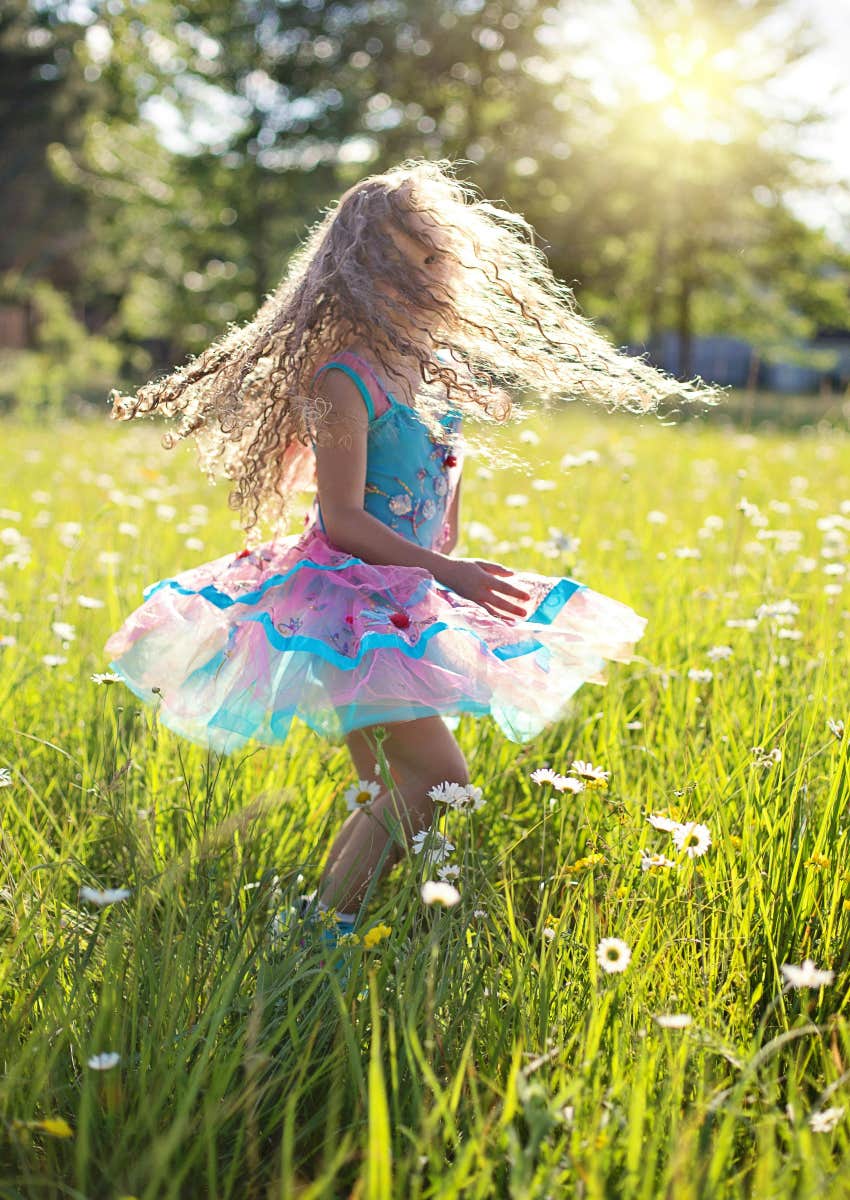People Criticize ‘Boujee Aunt’ Who Doesn’t Smile While Her Young Niece Performs A Dance
Some thought the aunt was rude to the little girl, while others felt she did the kindest thing she could.
 Yuganov Konstantin | Shutterstock
Yuganov Konstantin | Shutterstock Let’s be honest — kids aren’t always exciting or entertaining to adults. That’s okay. They’re not supposed to be.
As long as they’re safe and having fun, everything is fine.
One portion of the internet did not agree with this after seeing a video of an aunt who had almost no reaction to her niece’s dance.
An aunt received hate for not being more enthusiastic about a dance her niece performed.
A video that has now made the rounds on all social media platforms originated on TikTok. It was shared by the Hodge family, known as @hodgehouse, on the app.
In the video, a little girl can be seen performing a dance that someone on Facebook identified as what appeared to be the dance popularized by the Netflix series "Wednesday." The girl’s aunt was looking on.
“The boujee aunt who doesn’t really like kids but is attempting to be supportive of niece,” text across the video read.
Critics argued the aunt's disinterest was probably hurtful to her niece.
While the girl danced, her aunt looked at her with a blank expression. At the end of the performance, she seemed to give a slight smile before turning back to the other adults in the room.
Naturally, those who saw the video couldn’t handle the aunt’s apparent apathy. Viewers left blistering comments about her lack of interest in her niece, particularly on Facebook.
“My niece would never have to experience that,” commenter Brooke Williams said on Facebook.
“I feel bad for this kid,” Gabriella Brown said.
Brenda Gonzalez noted, “Little girl will remember her aunt being cold to her when she probably looks up to her and just wants her approval.”
Others, however, had no problem with the ‘boujee aunt’s’ behavior.
While some took major issue with this aunt’s lack of a reaction to her niece’s dance, others thought there was nothing wrong and came to her defense. After all, it was just a kid doing a silly dance.
As many pointed out, there were other adults in the video who openly laughed at the girl. Of course, it’s difficult to tell from a quick clip whether their intent was malicious or not. Still, the laughter seemed to be in poor taste.
Meanwhile, the aunt was the only one who kept a straight face.
 Photo By: Kaboompics.com | Pexels
Photo By: Kaboompics.com | Pexels
“Y’all are hating on this woman ‘cause she [doesn’t] like kids, but she’s the only one who considered the kid’s feelings, didn’t laugh at her and actually tried paying attention to the dance,” Angre TC said on Facebook.
Chelsea Elizabeth Shook added, “Okay, but she was the only one who didn’t laugh because she knew it would embarrass her so I think maybe she likes this kid.”
And, as some noted, it wasn’t exactly a performance to go crazy for. It lasted a few seconds and was just something silly from a TV show.
“I’m with the aunt,” Jj Tully said. “Was that supposed to be impressive or something?”
According to one expert, giving children praise should be done with great care.
It may seem like the obvious thing to tell a child they did something good when they put on a little performance for the family. “Good job” is an easy, quick, and natural response.
Professor Jim Taylor explained to Psychology Today why this may not always be a good thing.
 Jill Wellington | Pexels
Jill Wellington | Pexels
Taylor stated that the “purpose of praise” is “to encourage children to continue to engage in positive behaviors that produce positive outcomes.”
“Good job,” he said, does not do this. It is too vague and doesn’t tell the child what they actually did well.
Since praise should be specific and point out exactly what was done well, it seems like it may not be entirely appropriate in this situation, at least according to Taylor.
A smile and some enthusiasm would have been nice, yes, but this child performed a dance that went viral on social media. It was not exactly the moment for effusive praise.
Mary-Faith Martinez is a writer with a bachelor’s degree in English and Journalism who covers news, psychology, lifestyle, and human interest topics.

